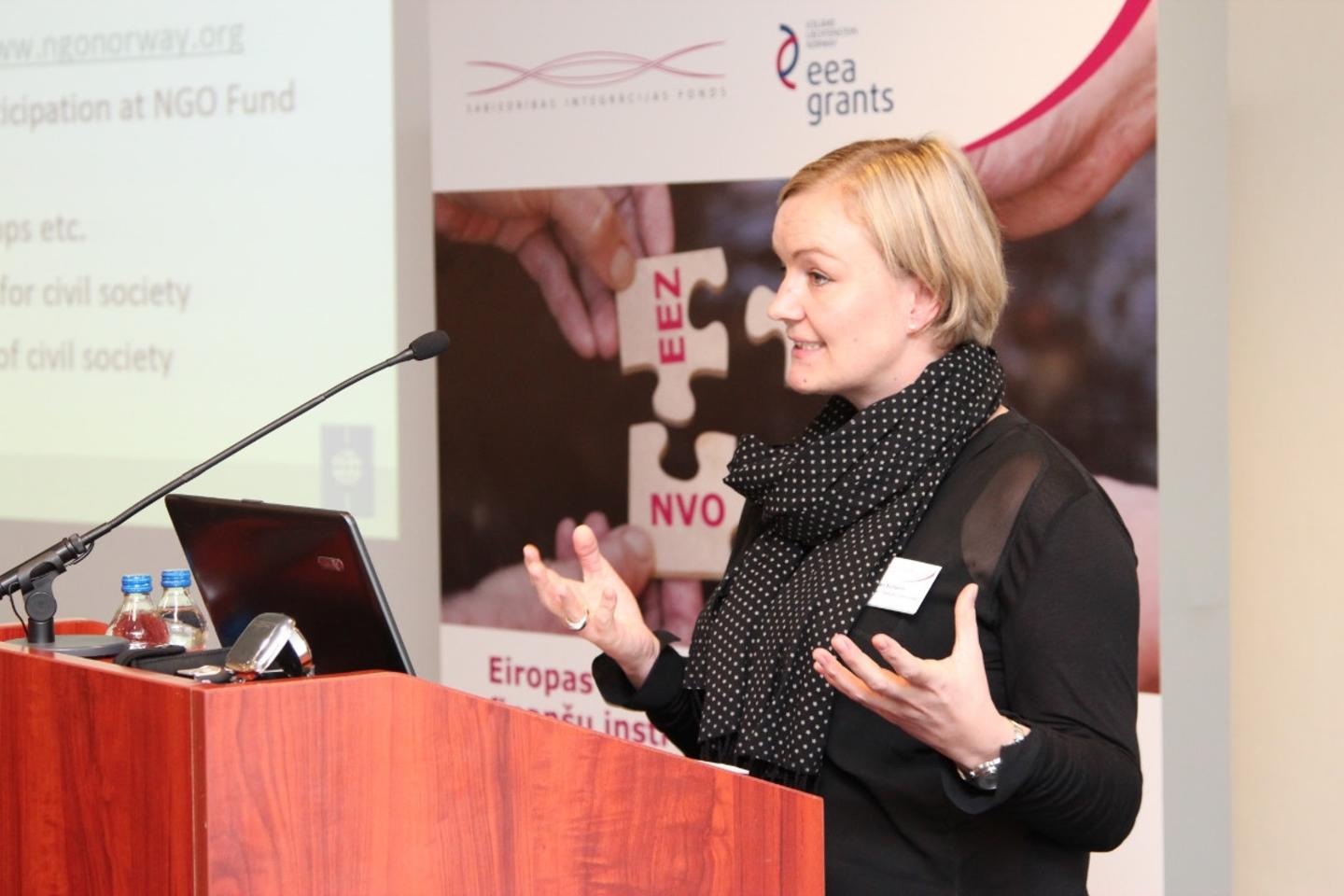The Norwegian Helsinki Committee is responsible for keeping the Norwegian civil society informed about the opportunities for cooperation under the NGO funds in the 15 beneficiary countries.
Donor programme partners play a significant role in programme planning and implementation under the EEA and Norway Grants, but they are not the only entities involved in facilitating partnerships between entities from donor and beneficiary states. Some organisations, such as the Norwegian Helsinki Committee (NHC), have undertaken a different, but also significant role within the EEA and Norway Grants.
The Norwegian Helsinki Committee is an NGO focused on ensuring respect of human rights through monitoring, reporting, teaching and supporting democracy. In addition to this, the Committee is also responsible for keeping the Norwegian civil society well informed about the NGO funds in all the 15 beneficiary countries, and it assists in establishing contacts and cooperation between NGOs from the beneficiary states and Norway.
With more and more open calls launched under the EEA and Norway Grants, such as the recently published five open calls for NGO projects in Latvia, nine open calls for NGO projects in Hungary, and two open calls for NGO projects in Bulgaria, this assistance is of key importance.
The Norwegian Helsinki Committee cooperates with the Norwegian Ministry of Foreign Affairs, Norwegian embassies, programme operators in the beneficiary states, donor programme partners and the Financial Mechanism Office.
Fostering bilateral cooperation
As part of its strategic role, the Norwegian Helsinki Committee has direct contact with Norwegian organisations seeking information about the Grants, providing advice and answering relevant questions about partnership opportunities in the beneficiary states. It also gives advice and matches organisations with each other.
According to Lillian Solheim, Project Manager at the Norwegian Helsinki Committee, this task is important for the implementation of the Grants and also challenging.
“The voluntary sector in Norway consists of 115 000 non-governmental and non-profit organisations. The challenge lies in reaching out to all these organisations in the most effective way and finding the ones that have the capacity and interest in international projects,” says Ms. Solheim.
The NHC ensures that relevant information is available online to those who are interested in building new partnerships. The NGO Partnership Portal includes a database of potential Norwegian partner organisations for NGO-related projects. Norwegian NGOs use it to search for partners in the beneficiary states.
Some of the programme areas in which the Committee is actively involved include conservation and revitalisation of cultural and natural heritage, and promotion of diversity in culture and arts. The Norwegian Helsinki Committee has been working with the Arts Council Norway and the Norwegian Directorate for Cultural Heritage to find the best ways to disseminate information on partnership opportunities in Norway and foster strengthened bilateral ties.
The Committee is also playing an important role in matchmaking NGOs from beneficiary and donor countries. In Estonia, during the launch of the NGO fund in June 2012, the NHC was instrumental in identifying relevant organisations in such fields as disability, youth, cultural heritage and gender. As a result, numerous NGOs attended the launch conference and had the opportunity to meet partners. In February 2012, during the launch of the NGO fund in Hungary, the Committee also played an important role in matchmaking partners from Norway and Hungary.
Strong feedback
To reach out the Norwegian public, the Committee is holding information meetings in Norway.
“We organised regional information meetings in the major cities of Norway in the autumn of 2012, and this was a great opportunity to spread information on the Grants, meet new organisations and establish contacts,” says Ms. Solheim, pointing to the positive feedback the Committee has received from the Norwegian non-governmental sector.
“It was especially interesting to meet all the enthusiastic volunteers and NGO representatives who are committed to strengthening relations across borders, while at the same time working together to create better societies.”
You can find out more about partnership opportunities and register as a partner organisation here.
Photo credit: Society Integration Foundation
